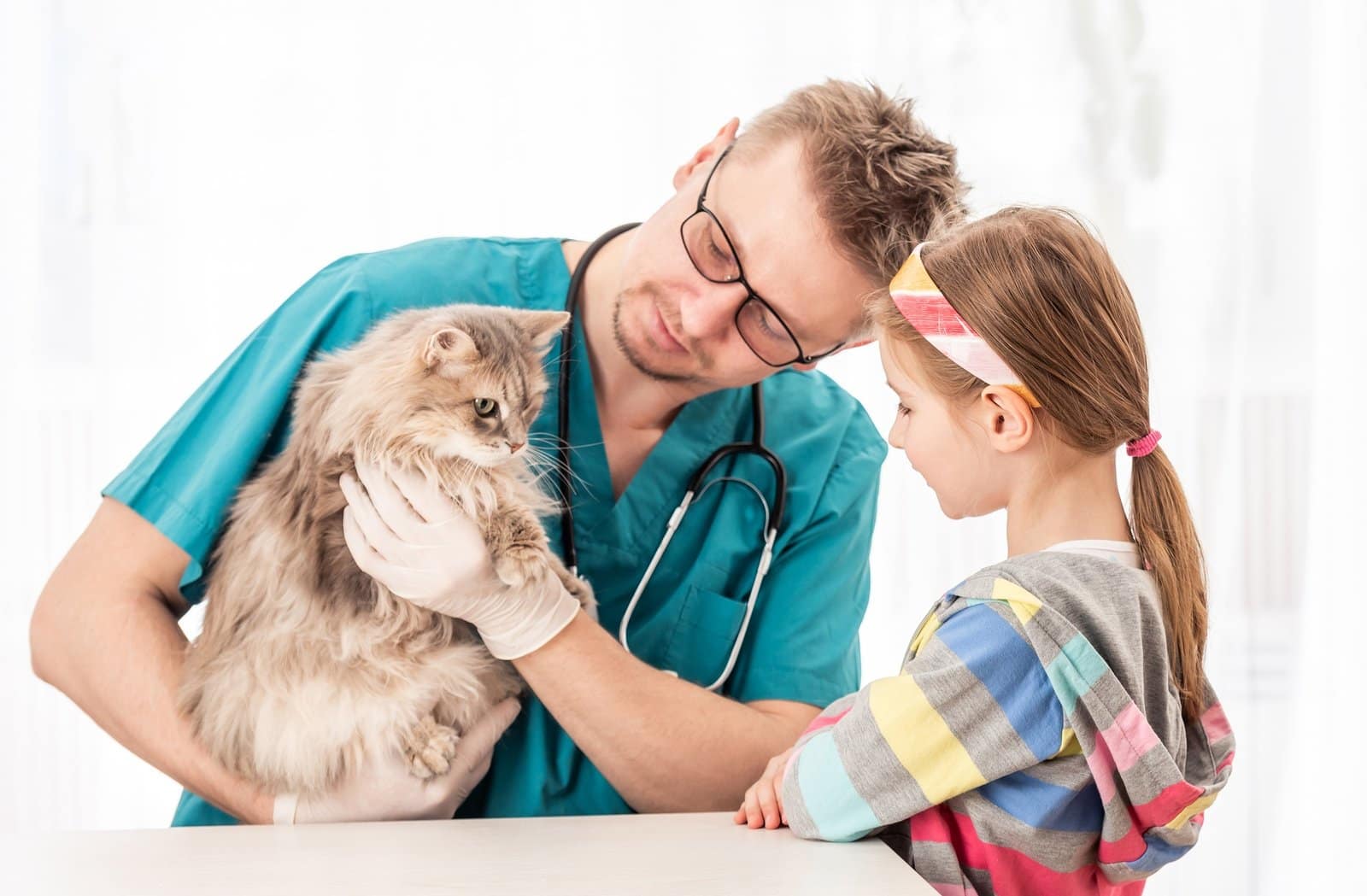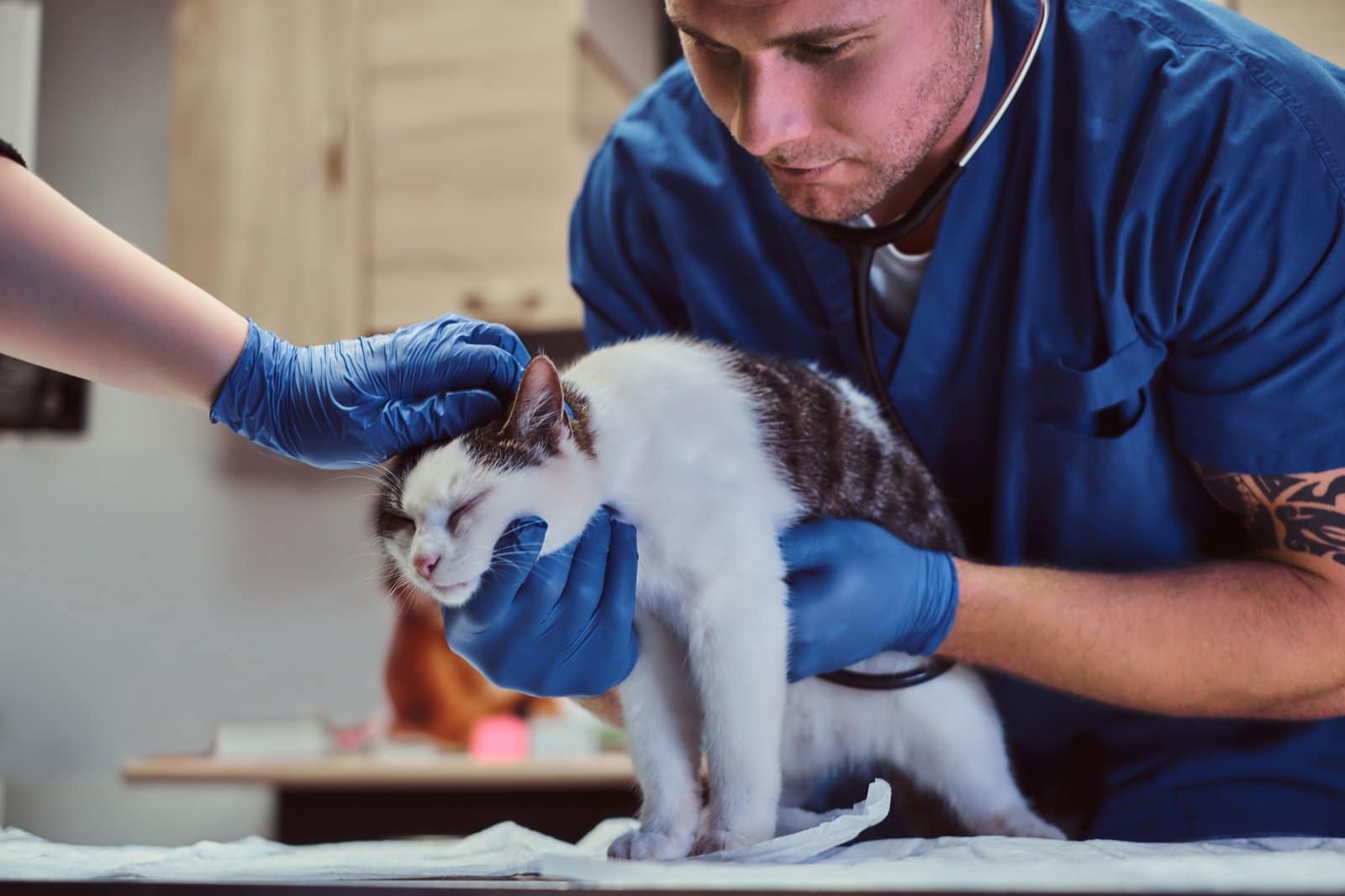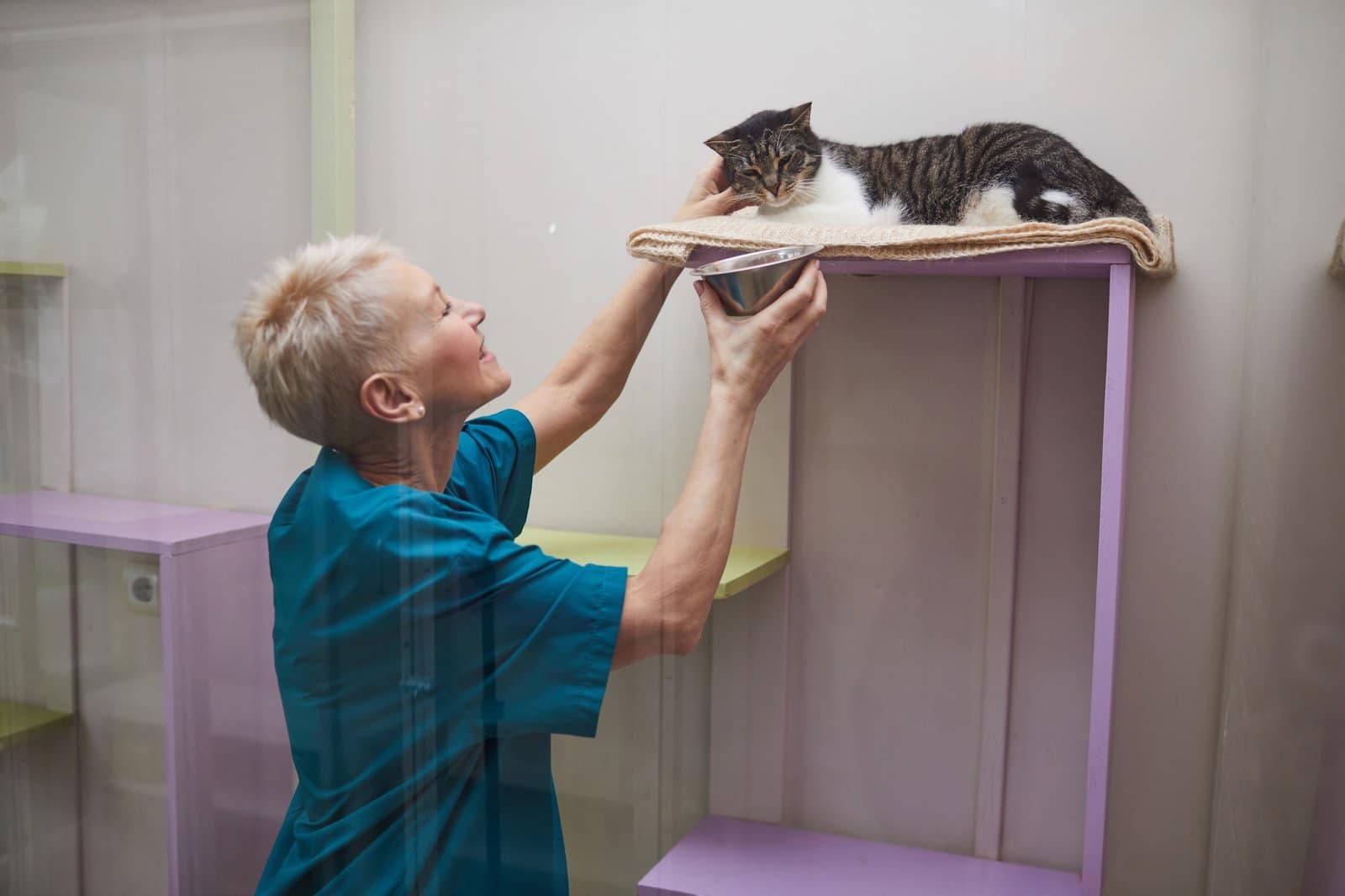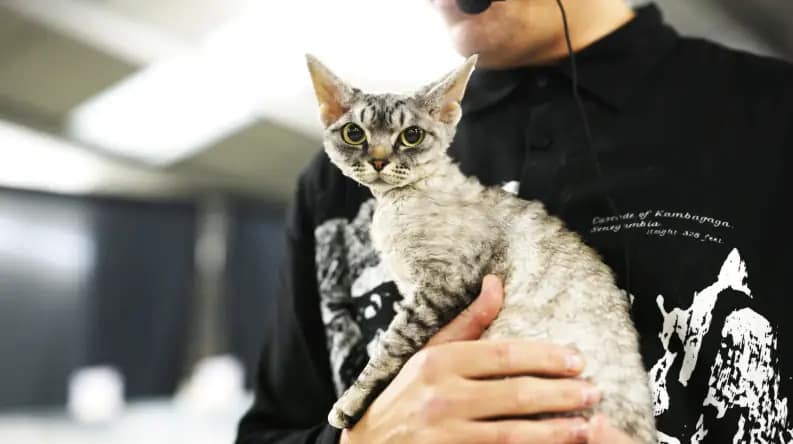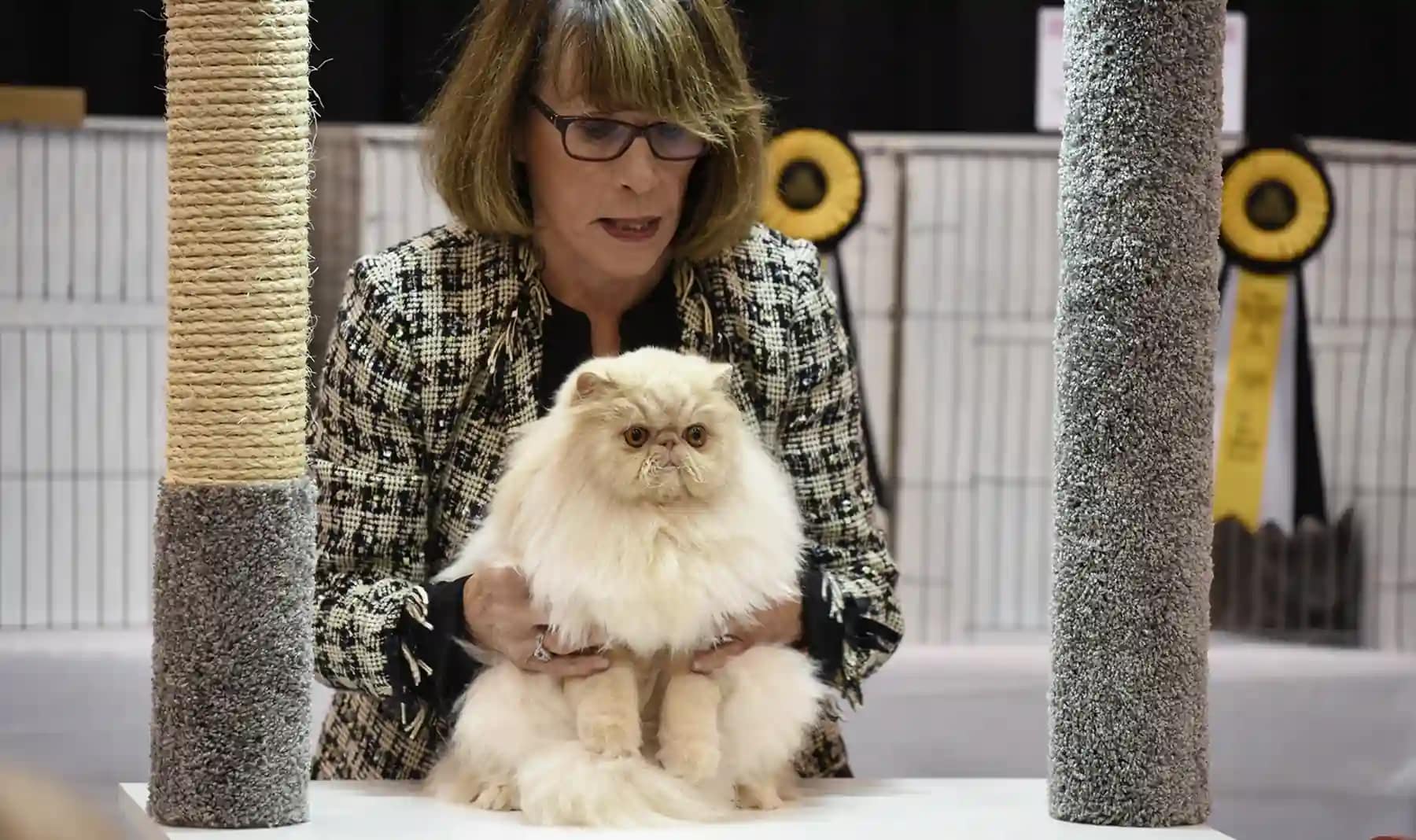Introduction: Sometimes It’s Not Behavioral—It’s Medical
If your cat has started peeing on your bed, it’s easy to assume it’s a behavioral issue—or worse, that they’re acting out of spite. But in many cases we’ve seen at SnuggleSouls, there’s a medical issue quietly driving the behavior. What may look like “bad behavior” is often a cry for help from a cat that’s hurting, confused, or physically unable to make it to the litter box.
Cats are notoriously good at hiding pain. That’s why even experienced cat parents are surprised when a subtle change like peeing on the bed turns out to be linked to something deeper—an infection, chronic illness, or age-related decline. And once the medical issue is identified and treated? Inappropriate urination often stops on its own.
Looking for a Complete Guide?
If you’re trying to understand all the reasons why your cat may be peeing on the bed—including emotional, environmental, and litter box factors—don’t miss our in-depth guide:
👉Why Is My Cat Peeing on Bed? Causes & Proven Fixes
But if you’ve already ruled out behavioral changes or suspect something’s not quite right with your cat’s health, this article will walk you through the most common medical causes—and what you can do to help your feline friend recover.
Medical Causes of Bed Urination in Cats (What You Might Be Overlooking)
Medical problems can make it uncomfortable, painful, or even impossible for a cat to reach the litter box in time. And your bed? It’s soft, warm, and smells like you—an instinctual source of comfort when your cat is distressed.
Let’s take a closer look at some of the most common conditions that may be behind the behavior.
1. Urinary Tract Infections (UTIs) or Bladder Inflammation
A UTI or a sterile bladder inflammation (such as feline idiopathic cystitis) can cause pain and a frequent urge to urinate. Your cat might associate the litter box with pain and start avoiding it. Soft surfaces like a bed may feel soothing on a sore bladder. Signs to watch for include straining, frequent small pees, or blood-tinged urine.
2. Bladder Stones or Crystals
Mineral deposits in the urinary tract (stones or crystals) irritate the bladder lining. They can cause frequent urination and sometimes blockages (especially in male cats, a medical emergency). A cat with bladder stones may not make it to the box every time and might choose the bed because it’s absorbent and comfortable when they feel urgency.
3. Kidney Disease or Diabetes
These conditions cause cats to drink more and urinate more often. If your cat’s kidneys aren’t concentrating urine or if excess blood sugar is making them pee a lot, they might have accidents if they can’t get to the litter box quickly enough. An increase in urine volume or frequency, weight loss, or increased thirst in your cat warrants a vet visit.
4. Urinary Incontinence
Some cats (often older or with certain neurological issues) simply cannot hold their urine normally. Incontinence can result from nerve damage, congenital abnormalities, or other illnesses. These cats might leak urine while sleeping on the bed or choose the bed because when they gotta go, they go now (wherever they are).
5. Arthritis or Mobility Issues
An older cat or one with arthritis may find it painful to climb in and out of a high-sided or distant litter box. If your cat has stiffness or difficulty jumping, they might opt to relieve themselves on a soft, accessible spot like your bed rather than make a painful trip to the litter area.
6. Cognitive Dysfunction (Feline Dementia)
Senior cats can develop cognitive issues that make them confused about where the litter box is. They may literally forget their training and pee on an available soft surface like a bed. This typically happens in cats well over 10 years old and might come with other signs of disorientation or changes in sleep cycles.
7. Hormonal Influences (Not Neutered/Spayed)
An intact (un-neutered) male cat has a strong drive to mark territory with urine. While true spraying is usually on vertical surfaces, an unneutered cat may also mark horizontal items (like beds) with urine scent. Unspayed females in heat might also urinate outside the box to advertise to males. If your cat isn’t fixed, the first solution is to spay or neuter, which greatly reduces territorial urine marking.
What You Can Do: How to Address Medical Urination Issues
If you suspect any medical cause at all, schedule an appointment with your veterinarian as soon as possible. Don’t delay, because conditions like UTIs or blockages can be very painful (even life-threatening in the case of a urinary blockage). Here’s how to tackle potential medical problems:
1. Book a Veterinary Exam
A vet will likely do a physical exam and maybe suggest tests like a urinalysis, urine culture, or blood work. This can identify infections, crystals, kidney function, blood sugar levels, etc. It’s crucial to rule out or treat these issues first – no amount of training or environmental change will help if your cat is peeing on the bed due to a bladder infection or illness. As one veterinary study noted, it should remain standard practice to screen all house-soiling cats for medical issues.
A full check-up should include a urinalysis, blood work, and possibly imaging (like an x-ray or ultrasound) to assess kidney health, detect infections, or spot stones.
As the American Association of Feline Practitioners (AAFP) recommends, screening for medical issues is essential before assuming a behavior problem.
- “Medical evaluation should be standard practice for any cat exhibiting inappropriate elimination.” – AAFP & ISFM Guidelines (Carney et al., 2014)
2. Follow Through with Treatment
Whether it’s antibiotics for an infection, diet changes for crystal dissolution, insulin for diabetes, or joint support for arthritis—stick to the treatment plan. Once the root issue is resolved, many cats return to normal bathroom habits naturally.
3. Make Litter Box Access Easier
During recovery, make sure the litter box is low-entry, nearby, and ultra-clean. For arthritic cats, consider a ramp or open-sided tray. For confused seniors, place an extra box in their usual resting area.
And if your cat had a painful experience in the old box, a new box with fresh litter might help break the negative association.
4. Respond with Patience and Compassion
A sick cat isn’t naughty – they’re hurting. Avoid scolding or punishing your cat for the accidents. They literally may not be able to help it. Comfort them and keep them confined to easy-to-clean areas if needed until the treatment takes effect. With medication or proper care, you’ll hopefully see the bed-peeing stop if it was due to a health problem.
By ruling out and treating medical causes first, you’re eliminating the most urgent and physical reasons for your cat’s behavior. Never assume it’s “just behavioral” without a vet check – many cats suffer in silence from conditions that only show subtle signs like a change in urination habits. Once your kitty gets a clean bill of health (or proper meds on board), you can turn your attention to other possible causes like stress or environment.
Conclusion
It’s easy to assume a cat peeing on the bed is “just acting out.” But as we’ve seen again and again, many of these cases begin with pain, illness, or physical limitation.
When you address the underlying medical cause, you’re not just saving your sheets—you’re relieving your cat’s suffering.
If your cat’s behavior has changed, even subtly, don’t wait. Talk to your vet. Rule out the silent conditions that cats so expertly hide. Once they’re treated, you’ll likely see more than just cleaner linens—you’ll see a happier, more relaxed cat.
Want to understand emotional and behavioral causes too? Don’t miss our full guide:
👉Why Is My Cat Peeing on Bed? Causes & Proven Fixes
Your cat isn’t trying to make your life harder. They’re telling you something’s wrong—in the only way they know how. And now you know how to listen.
FAQ
1. How do I know if my cat’s urination is due to a medical issue or behavior?
Look for signs like straining, frequent urination, blood in urine, increased thirst, or mobility issues. Always consult a vet first to rule out health problems before addressing behavioral concerns.
2. Can a UTI cause a cat to pee on the bed?
Yes. UTIs can make urination painful or urgent, and cats may avoid the litter box if they associate it with discomfort. Soft surfaces like beds often feel soothing on an inflamed bladder.
3. Is it common for older cats to develop incontinence or dementia?
Yes. Senior cats often suffer from age-related conditions like incontinence or cognitive dysfunction, which can lead to confusion or accidental urination, even on beds.
4. Should I punish my cat for peeing on my bed due to a medical issue?
No. Cats experiencing medical issues are not misbehaving. Punishment increases stress and delays recovery. Focus on comfort, vet care, and improving litter box access during healing.
5. What tests will a vet do to check for medical problems?
Your vet may perform a physical exam, urinalysis, blood work, and possibly imaging (ultrasound/X-ray) to diagnose conditions like UTIs, bladder stones, kidney disease, or diabetes.
References
Carney, H. C., Sadek, T. P., Curtis, T. M., Halls, V., Heath, S., & Crowell-Davis, S. (2014). AAFP and ISFM guidelines for diagnosing and solving house-soiling behavior in cats. Journal of Feline Medicine and Surgery, 16(7), 579–598.
Cornell University College of Veterinary Medicine. (n.d.). Feline lower urinary tract disease (FLUTD). Retrieved May 6, 2025, from https://www.vet.cornell.edu

